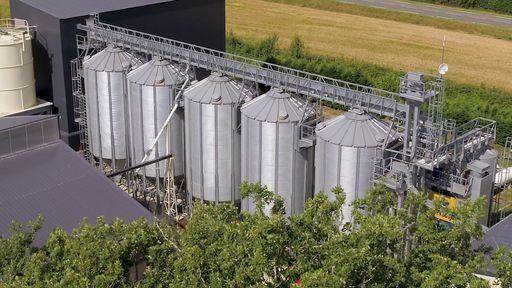According to dietitians, the animal-based diet may pose health risks due to its restrictive nature. A recent study suggests that 50% of plant-based diet followers could face muscle wastage, highlighting potential nutrient deficiencies in vegan and vegetarian diets. Experts emphasize balanced nutrition to mitigate these concerns.
Key Points
- Research suggests plant-based diets may lower heart disease and diabetes risks, but careful planning is needed to avoid nutrient deficiencies.
- It seems likely that animal-based diets, especially high in red meat, increase cancer and weight gain risks, with higher environmental impact.
- The evidence leans toward both diets being healthy with proper planning, with controversies around muscle wastage in plant-based diets and heart disease in animal-based diets.
Plant-Based Diets: Benefits and Risks
Plant-based diets, like vegetarian or vegan, often show health benefits such as lower rates of heart disease and type 2 diabetes. Studies suggest these diets can reduce your BMI, LDL cholesterol, and blood pressure, potentially lowering your risk of serious conditions PMC Article on Plant-Based Diets. However, if not well-planned, you might miss out on nutrients like vitamin B12, calcium, and omega-3s, which could lead to health issues like fractures, especially for vegans PMC Article on Long-Term Health Effects. A recent study also found that about 50% of long-term vegans may risk muscle wastage due to deficiencies in amino acids like lysine and leucine, even if they meet protein guidelines Daily Mail Article on Vegan Muscle Wastage.
Animal-Based Diets: Benefits and Risks
Animal-based diets, particularly those with lots of red and processed meats, may increase your risk of weight gain, certain cancers, and type 2 diabetes World Cancer Research Fund on Diet and Cancer. On the positive side, they provide complete proteins and nutrients like vitamin B12 and iron, which are harder to get from plants. However, they tend to have a larger environmental footprint, contributing more to greenhouse gas emissions PMC Article on Plant-Based Diets.
Finding Balance
Both diets can work well if you plan carefully. For plant-based eaters, consider fortified foods or supplements to cover nutrient gaps. For animal-based diets, try limiting red meat and adding more plant foods. A middle ground, like the Mediterranean diet, might offer the best of both, reducing heart disease risk while keeping nutrition balanced Harvard Health on Mediterranean Diet.
Detailed Survey Note: Health Implications of Animal-Based and Plant-Based Diets
This detailed survey note explores the health implications of animal-based and plant-based diets, providing a comprehensive analysis based on recent scientific research. It aims to inform readers about the benefits, risks, and balanced approaches to these dietary patterns, ensuring a thorough understanding for personal health decisions.
Introduction
The debate between plant-based and animal-based diets has intensified, driven by health, environmental, and ethical considerations. Plant-based diets, encompassing vegetarian and vegan lifestyles, have gained popularity for their potential to reduce chronic disease risk and environmental impact. Conversely, animal-based diets, rich in meat and dairy, offer complete nutrition but are linked to higher health risks and ecological footprints. This note synthesizes findings from multiple studies to offer a balanced perspective, acknowledging the complexity and ongoing research in this field.
Health Benefits and Risks of Plant-Based Diets
Plant-based diets, which prioritize foods from plants and may exclude or limit animal products, have been extensively studied for their health impacts. Research suggests significant benefits, particularly in cardiovascular health and metabolic outcomes. For instance, a study published in Nutrients highlights that plant-based diets are associated with lower rates of heart disease, type 2 diabetes, and some cancers compared to diets high in meat and animal products PMC Article on Plant-Based Diets. Specifically, vegetarians and vegans typically exhibit lower body mass index (BMI), with vegetarians showing a BMI reduction of approximately 1 kg/m² for men and 2 kg/m² for women compared to meat-eaters, and vegans showing even lower values PMC Article on Long-Term Health Effects. This is supported by lower LDL cholesterol levels, with vegans showing reductions of 0.85 mmol/L in men and 0.49 mmol/L in women before BMI adjustment, and lower blood pressure, with systolic blood pressure reductions of 4.2 mmHg in men and 2.4 mmHg in women compared to meat-eaters PMC Article on Long-Term Health Effects.
The risk reduction for ischaemic heart disease is notable, with vegetarians experiencing a 23% lower risk and vegans an 18% lower risk, though the latter’s confidence intervals were wide, indicating less statistical significance PMC Article on Long-Term Health Effects. Diabetes risk is also lower, with vegetarians at 35% and vegans at 47% reduced risk, though these figures adjust to 11% and 1% respectively after BMI adjustment, suggesting BMI plays a significant role PMC Article on Long-Term Health Effects. Cancer risk is reduced by 10% for vegetarians and 18% for vegans, though an unexpected 90% higher risk of cervical cancer was noted for vegetarians, with borderline significance PMC Article on Long-Term Health Effects.
However, plant-based diets carry risks, particularly if not well-planned. Nutrient deficiencies are a major concern, with potential shortfalls in vitamin B12, vitamin D, calcium, iodine, and omega-3 fatty acids. Vegans, in particular, face a 50% higher risk for all fractures and 164% higher for hip fractures compared to meat-eaters, even after BMI adjustment, likely due to lower bone mineral density and inadequate calcium intake PMC Article on Long-Term Health Effects. Historical data from the EPIC-Oxford study showed vegan women and men had calcium intakes of 582 mg/d and 610 mg/d respectively at recruitment, significantly lower than meat-eaters’ 1083 mg/d PMC Article on Long-Term Health Effects. Vitamin B12 deficiency is prevalent, with 52% of vegans showing serum levels below 118 pmol/L, compared to 7% for vegetarians PMC Article on Long-Term Health Effects.
A recent study from Massey University, analyzing nearly 200 long-term vegans in New Zealand, found that about 50% were deficient in lysine and leucine, critical amino acids for muscle maintenance, despite 75% meeting recommended plant protein intake Daily Mail Article on Vegan Muscle Wastage. This suggests that while plant-based diets can provide protein, the bioavailability and amino acid profile may not always support muscle health, potentially leading to muscle wastage, especially in vulnerable groups like the elderly.
Health Benefits and Risks of Animal-Based Diets
Animal-based diets, particularly those high in red and processed meats, are associated with increased health risks. The World Cancer Research Fund reports that high intake of red and processed meat is a convincing cause of colorectal cancer, with links to increased weight gain and type 2 diabetes World Cancer Research Fund on Diet and Cancer. These diets are often higher in saturated fats and sodium, contributing to cardiovascular disease risk, with studies showing higher rates of heart disease among regular meat-eaters compared to vegetarians and vegans PMC Article on Plant-Based Diets.
On the positive side, animal-based foods provide complete proteins with all essential amino acids, crucial for muscle synthesis and maintenance. They are also rich sources of vitamin B12, iron, and omega-3 fatty acids, nutrients that can be challenging to obtain in adequate amounts from plant sources without fortification or supplementation PMC Article on Long-Term Health Effects. However, the environmental impact is significant, with animal-based diets contributing to higher greenhouse gas emissions, land use, and water consumption compared to plant-based diets PMC Article on Plant-Based Diets.
Comparative Analysis: A Table of Key Metrics
To facilitate understanding, here is a table summarizing key health metrics for plant-based (vegetarian and vegan) versus animal-based diets, based on the reviewed studies:
| Metric | Vegetarian Benefit/Risk | Vegan Benefit/Risk | Animal-Based Diet (Implied) |
|---|---|---|---|
| BMI Reduction | ~1 kg/m² (men), ~2 kg/m² (women) lower vs meat-eaters | ~1 kg/m² (men), ~2 kg/m² (women) lower vs meat-eaters | Higher BMI, linked to weight gain |
| LDL Cholesterol | Intermediate lower (exact difference not specified) | 0.85 mmol/L lower (men), 0.49 mmol/L lower (women) | Higher, linked to heart disease |
| Blood Pressure | Very small differences vs meat-eaters | Systolic BP 4.2 mmHg lower (men), 2.4 mmHg lower (women) | Higher, contributing to CVD risk |
| Ischaemic Heart Disease | 23% lower risk (HR 0.77, adjusted for BMI: 17% lower) | 18% lower risk, not significant | Higher risk vs plant-based diets |
| Stroke | 17% higher risk, driven by 48% higher haemorrhagic stroke | Point estimate 1.35, not significant | Lower risk compared to vegetarians for haemorrhagic |
| Diabetes Risk | 35% lower (adjusted for BMI: 11%, non-significant) | 47% lower (adjusted for BMI: 1%, non-significant) | Higher risk, linked to red meat intake |
| Fractures | 11% higher risk (adjusted for BMI: 9%); 34% higher hip fracture | 50% higher risk; 164% higher hip fracture | Lower risk compared to vegans |
| Vitamin B12 Deficiency | 7% deficient (<118 pmol/L) | 52% deficient (<118 pmol/L) | Adequate, from animal sources |
| Environmental Impact | Lower GHGEs (-22%), land use (-28%) | Lower GHGEs (-51%), land use (-45%) | Higher GHGEs, land, water use |
Note: GHGEs = Greenhouse Gas Emissions; HR = Hazard Ratio; Data sourced from PMC Article on Long-Term Health Effects and PMC Article on Plant-Based Diets.
Balancing the Diets: Practical Recommendations
Given the evidence, both dietary patterns can be healthy with appropriate planning. For plant-based diets, ensuring adequate intake of nutrients like vitamin B12, calcium, and omega-3s is crucial, potentially through fortified foods (e.g., plant milks fortified with calcium) or supplements. The study on muscle wastage suggests incorporating legumes, nuts, and seeds to boost lysine and leucine intake, though more research is needed on absorption Daily Mail Article on Vegan Muscle Wastage. For animal-based diets, limiting red and processed meat intake and increasing plant food consumption can mitigate health risks, aligning with dietary guidelines like the Mediterranean diet, which includes moderate animal products and is linked to reduced heart disease risk Harvard Health on Mediterranean Diet.
Flexitarian approaches, primarily plant-based with occasional animal products, offer a middle ground, balancing nutritional needs with environmental considerations. This approach can help address the controversies, such as the muscle wastage risk in vegans and the heart disease risk in high-meat diets, by allowing flexibility and personalization.
Conclusion
In conclusion, while plant-based diets generally offer health benefits and lower environmental impact, they require careful planning to avoid nutrient deficiencies and risks like muscle wastage and fractures. Animal-based diets provide essential nutrients but carry higher risks of chronic diseases and environmental harm. The evidence leans toward a balanced approach, such as the Mediterranean or flexitarian diet, which can optimize health outcomes while addressing the complexities of dietary choices. Further research is needed, particularly on optimizing plant-based protein quality and long-term outcomes for both dietary patterns.
Key Citations
- PMC Article on Plant-Based Diets: Exploring Benefits and Barriers
- Harvard Health on Plant-Based Diets: Are They Best?
- PMC Article on Long-Term Health Effects of Plant-Based Diets
- Daily Mail Article on Vegan Muscle Wastage Study
- World Cancer Research Fund on Diet and Cancer
- Harvard Health on Mediterranean Diet: Heart-Healthy Eating Plan







